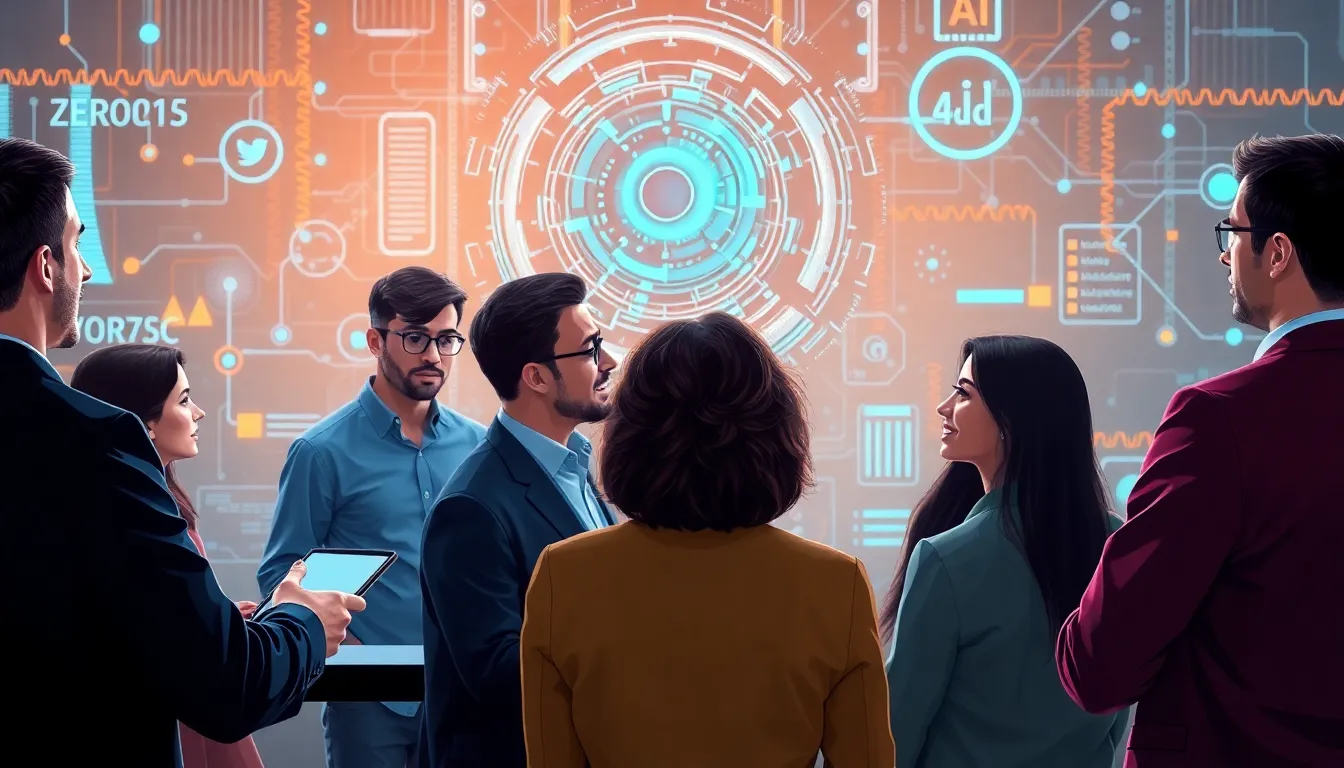Table of Contents
ToggleIn a world where robots might soon take over our jobs and our coffee orders, diving into the realm of artificial intelligence through books is more relevant than ever. These literary gems not only unravel the mysteries of AI but also tickle the imagination with what the future might hold. From chilling dystopias to enlightening guides, there’s a book for everyone curious about the machines that might soon outsmart us—hopefully not while we’re still trying to figure out how to reboot our Wi-Fi.
Overview of Artificial Intelligence Books
Exploring artificial intelligence through books offers valuable insights into technology’s evolution. Genres range from speculative fiction to academic analysis, providing a broad perspective on AI’s implications. Dystopian narratives often highlight potential risks associated with AI, creating cautionary tales that provoke thought about our future with technology.
Conversely, non-fiction works present a deeper understanding of AI’s mechanics and applications. Authors like Stuart Russell and Nick Bostrom focus on ethical considerations, urging readers to contemplate AI’s safe development. The book “Superintelligence: Paths, Dangers, Strategies” by Bostrom examines scenarios where AI exceeds human intelligence, provoking discussions on societal impact.
Readers can find technical manuals that detail machine learning algorithms, guiding those new to the field. Resources like “Artificial Intelligence: A Modern Approach” by Russell and Norvig serve as comprehensive introductions to the subject. Such texts benefit students and professionals seeking foundational knowledge.
Additionally, many books these days intertwine stories with AI theory, making complex topics more accessible. “The Master Algorithm” by Pedro Domingos bridges narrative and technical discussion for a broad audience. His work demystifies the concepts driving modern machine learning and offers practical applications.
Literature on AI often delves into societal implications, covering how AI may shape industries like healthcare, finance, and transportation. Books like “Life 3.0: Being Human in the Age of Artificial Intelligence” by Max Tegmark consider AI’s role in redefining the human experience.
The variety of artificial intelligence books caters to diverse readers, from enthusiasts to researchers. The current landscape fosters awareness and dialogue around the future of technology, ensuring continued exploration of AI’s profound impact.
Key Genres of AI Literature

Various genres within AI literature offer insights and provoke thought about artificial intelligence. Readers can explore technical texts, popular science, and fictional representations, each contributing to a broader understanding of AI.
Technical Texts
Technical texts provide in-depth information about AI systems and algorithms. These works cater to professionals and students seeking detailed knowledge. “Artificial Intelligence: A Modern Approach” by Stuart Russell and Peter Norvig stands as a definitive resource that outlines foundational concepts. Manuals typically include practical examples and code snippets, making them useful for hands-on learners. Authors focus on various methodologies, including neural networks and machine learning techniques. This genre equips readers with the necessary tools to engage with AI development effectively.
Popular Science
Popular science books simplify complex AI concepts for a general audience. Such works aim to inspire curiosity while demystifying the technology. In “Life 3.0,” Max Tegmark discusses the future of AI in society, exploring transformative possibilities. Writers often discuss ethical dilemmas and potential advancements in an accessible manner. Nick Bostrom’s “Superintelligence” examines the risks associated with AI capabilities surpassing human intelligence. Readers benefit from engaging narratives that bridge science and real-world implications, fostering informed discussions about AI’s path forward.
Fictional Representations
Fictional representations of AI often incorporate diverse narratives, reflecting societal concerns and aspirations. Dystopian themes frequently emerge, showcasing the potential dangers of uncontrolled technological advancement. Books like “Neuromancer” by William Gibson illustrate a world heavily influenced by AI. Writers use characters and plotlines to explore complex relationships between humans and machines. Such fiction stimulates imagination while prompting vital ethical debates. Readers find themselves contemplating the consequences of AI and envisioning future scenarios shaped by technological evolution.
Notable Books About Artificial Intelligence
A wealth of literature exists on artificial intelligence, addressing both theoretical and practical aspects of this rapidly evolving field.
Classic Must-Reads
“Artificial Intelligence: A Modern Approach” by Stuart Russell and Peter Norvig remains essential for beginners in AI. This comprehensive textbook outlines various algorithms and problem-solving techniques. Isaac Asimov’s “I, Robot” introduces critical ethical dilemmas through captivating narratives that explore human-robot relationships. “The Master Algorithm” by Pedro Domingos presents an overview of machine learning and its potential to transform industries. Additionally, Nick Bostrom’s “Superintelligence” delves into future scenarios where AI surpasses human intelligence, urging readers to consider the implications of advanced technologies.
Recent Releases
“Life 3.0” by Max Tegmark discusses the future of AI and its potential impact on life and society. This book captures the imagination while addressing theoretical and practical challenges. “Human Compatible” by Stuart Russell critiques current AI development practices and emphasizes designing systems aligned with human values. “The Alignment Problem” by Brian Christian explores the complexities of aligning AI behavior with human intentions. Lastly, “The Age of AI” by Henry Kissinger, Eric Schmidt, and Daniel Huttenlocher provides a strategic perspective on AI’s influence across multiple domains, positioning it as a critical component of future global challenges.
How to Choose the Right Book
Selecting the right book about artificial intelligence involves understanding your knowledge base and interests. It’s essential to match the book’s complexity with your current comprehension of the subject.
Consider Your Background Knowledge
Assessing background knowledge helps readers choose appropriate material. Beginners benefit from introductory texts like “Artificial Intelligence: A Modern Approach,” which lays foundational concepts. Intermediate readers may engage with popular science works such as “Life 3.0,” which explores ethical dilemmas in AI. Advanced scholars might prefer technical manuals focused on algorithms and methodologies. Understanding one’s own expertise ensures the chosen book is neither too simplistic nor overly complex.
Identify Your Interests
Identifying interests narrows down the vast selection of AI literature. Those intrigued by the ethical implications of technology might appreciate titles like “Superintelligence” by Nick Bostrom. Fiction enthusiasts often find excitement in narratives that explore dystopian futures, highlighting societal concerns about AI, such as “I, Robot” by Isaac Asimov. Alternatively, technical enthusiasts may want to explore comprehensive guides on machine learning. Aligning book choices with personal interests fosters a more engaging reading experience.
Exploring books about artificial intelligence opens doors to understanding a rapidly evolving field. These literary works not only entertain but also provoke thought about the ethical and societal implications of AI. Whether through gripping narratives or insightful analyses, readers can find valuable perspectives that shape their views on technology’s future.
As AI continues to integrate into everyday life the importance of these discussions grows. Engaging with diverse genres helps individuals navigate complex ideas and encourages a deeper appreciation for the technology that may redefine humanity. By choosing the right book readers can embark on a journey that enriches their knowledge and sparks curiosity about the world of artificial intelligence.





